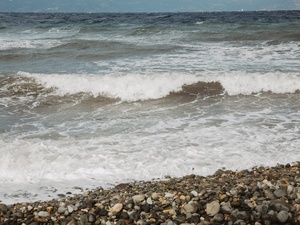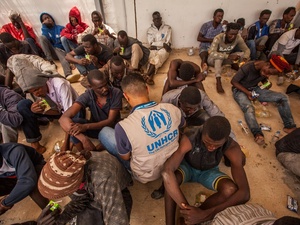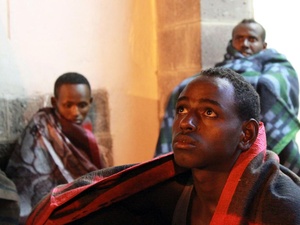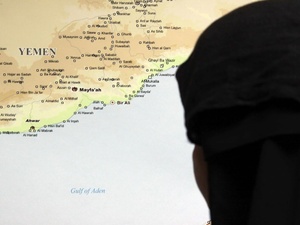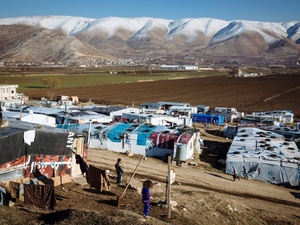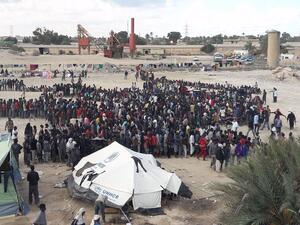More than 50,000 people risked perilous Gulf of Aden crossing last year
More than 50,000 people risked perilous Gulf of Aden crossing last year

A group of civilians wade out to a smuggler's boat on the coast of Somalia ahead of the Gulf of Aden crossing.
GENEVA, January 9 (UNHCR) - The UN refugee agency announced on Friday that more than 50,000 people made the perilous Gulf of Aden crossing from the Horn of Africa to Yemen last year and almost 600 died in the attempt.
"Final statistics for 2008 from our office in Yemen show that 50,091 people made the perilous voyage in smugglers' boats across the Gulf of Aden last year, and that at least 590 drowned. Another 359 were reported missing," UNHCR spokesman Ron Redmond told reporters in Geneva.
"This represents a 70 percent increase in arrivals over the previous year's total of 29,500 who made the journey with Somalia-based smugglers who are often brutal in their treatment of passengers. In 2007, the death toll was substantially higher - 1,400," Redmond added.
There were again many reports of people being beaten to death during the crossings last year, but most of the deaths were due to drowning after passengers were forced overboard far off the Yemen coast in a bid by the smugglers to avoid detection by Yemeni authorities. The increase in arrivals reflects the desperate situation in Somalia and the Horn of Africa, a region scarred by civil war, political instability, famine and poverty.
UNHCR is beefing up its response in Yemen by improving reception conditions for those who manage to reach its shores and has also carried out information campaigns in the Horn of Africa warning people of the dangers of using smugglers.
The UN refugee agency and its partners also have programmes aimed at improving living conditions of people with protection needs on the Africa side of the Gulf so that they don't need to risk their lives by crossing to Yemen.


